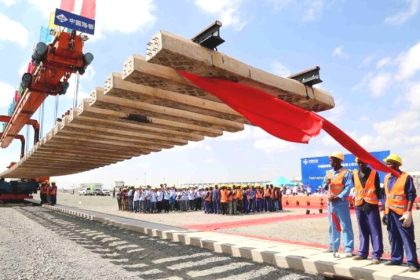2016 Development report raises pertinent questions on digital revolution
KAMAPALA, JANUARY 14- Digital technologies are spreading rapidly, but digital dividends—the broader benefits of faster growth, more jobs, and better services—are not. If more than 40 percent of adults in East Africa pay their utility bills using a mobile phone, why can’t others around the world do the same? If 8 million entrepreneurs in China—one-third of them women—can use an e-commerce platform to export goods to 120 countries, why can’t entrepreneurs elsewhere achieve the same global reach? And if India can provide unique digital identification to 1 billion people in five years, and thereby reduce corruption by billions of dollars, why can’t other countries replicate its success? Indeed, what’s holding back countries from realizing the profound and transformational effects that digital technologies are supposed to deliver?
These are some of the pertinent questions that the World Bank attempts to answer in the 2016 edition of the World Development Report.
The World Development Report 2016 shows that while the digital revolution has forged ahead, its “analog complements”—the regulations that promote entry and competition, the skills that enable workers to access and then leverage the new economy, and the institutions that are accountable to citizens—have not kept pace. And when these analog complements to digital investments are absent, the development impact can be disappointing.
The Report:
- examines how it can be a force for development, especially for the poor in developing countries
- explores the internet’s impact on economic growth, on social and economic opportunity, and on the efficiency of public service delivery
- analyzes the factors that have allowed some businesses, people, and governments to benefit
greatly from the internet—and others not - helps countries better leverage the internet for development
- identifies the policy reforms in the information and communication technology sectors, in complementary sectors, and in the development community

 AfDB puts up nearly $700m for Burundi-Tanzania SGR link
AfDB puts up nearly $700m for Burundi-Tanzania SGR link
 Bank of Uganda keeps base rate at 9.5% to support surge in GDP growth
Bank of Uganda keeps base rate at 9.5% to support surge in GDP growth
 Africans must resist being bulldozed in energy transition timetable debate
Africans must resist being bulldozed in energy transition timetable debate
 Standard Bank Group appoints new Chief Executive for Uganda Holdings
Standard Bank Group appoints new Chief Executive for Uganda Holdings
 TradeMark Africa introduces new App to limit EAC trade barriers
TradeMark Africa introduces new App to limit EAC trade barriers
 Employer hiring up during November as Stanbic PMI rises to 53.4
Employer hiring up during November as Stanbic PMI rises to 53.4
